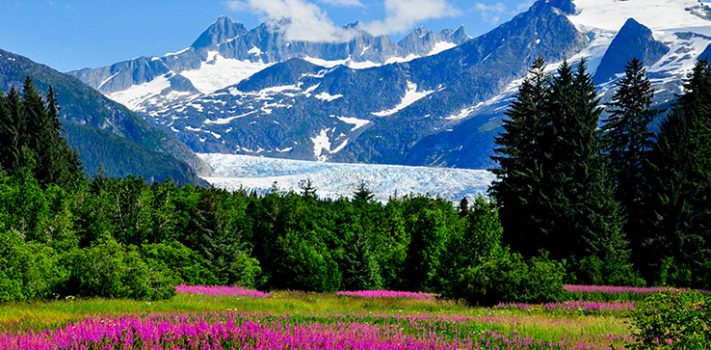Good Afternoon Hugh,
This is a response to the Letter regarding Alaska as a Survival Location. I am sure you are getting piles of letters from people in Alaska who claim many things. We have owned our property in Alaska for eight years. Here are some pointers for being successful in Alaska, which people down in the States don’t seem to understand.
- Location – Most people think that the only places to relocate to Alaska are in the “mainland” part. We live in Southeast Alaska, which is a rainforest. Water is plentiful here. Getting here is not difficult and the hub is Ketchikan. It’s like any other place in the country. Location, location, location. Don’t move someplace that is too far, too cold, too difficult… etc. Do research ahead of time. Just like you would before moving anywhere remote. Also, it makes no sense to pull up stakes and homestead if you have tons of bills and can’t make it without a job. There are jobs available, but if you are an unskilled worker, Alaska may not work for you. If you have a profession such as teaching, working in a medical field or some other skilled job, you will likely find a good paying job.
- Food – As the author indicated, many people barge their food up. However, we have purchased food from the Mormon Cannery and Costco and although we do pay a price for barging up from Seattle, it is worth what we have here. We also garden year round, have deer, salmon, halibut, herring, crabs, freshwater fish, etc. Some locations have moose and caribou, but those typically are on the mainland so we satisfy our needs with what we have. Thinking you are moving to Alaska so you can live in a suburb makes no sense. Get out of debt, make a plan and make a decision. It’s the same as if you made a decision to give up high paying jobs in the city and moving to a remote location in the country. Buying food locally is expensive, but again, barging up food, growing it, hunting and fishing more than satisfy our needs.
- Fuel – It’s slightly more than down in the states. But, on the flip side, it doesn’t have ethanol.
- Housing – Buying near Anchorage or Fairbanks is expensive. But buying near Chicago, New York, Seattle, San Francisco, etc… is also expensive. I thought we were trying to get out of the city, not buy a place in the city. Outside of the city there are plenty of places that are reasonable, but again, moving there with loads of debt needing a high paying job will not be possible.
- Employment – My husband and I work for our school district. We are very satisfied with our jobs. If you are a skilled professional, there are jobs available in Alaska. Thinking that there is free land, you can homestead and commute, or come up as an unskilled worker and find something that will pay for a nice place to live is simply not possible.
- The Permanent Fund Dividend (PFD) – I don’t know of any other location that will give people “free” money just for being a resident.
If you are committed to coming to Alaska the recommendations are the following:
- Make sure there are jobs for your profession. Don’t come expecting to find something when you live out in the boonies.
- Get out of debt.
- Look for property in places that make sense. Don’t think you can live in the middle of the state 300 miles from any populated area and be able to make it unless you are a serious outdoors person with a trust fund who doesn’t need to work. Even if you are, being alone in the middle of nowhere is not easy. Everything has to be flown in by bush plane or float plane. Do you want to live like that?
- Don’t think you can move to a native village unless you are being hired by a school. Most native villages are closed to outsiders. You also can’t purchase property there if you are not part of the tribe.
- Look for a small town and explore possibilities there. It may be possible, or it may not. Alaska is not for everyone, but there is nowhere like it. – A.C.










